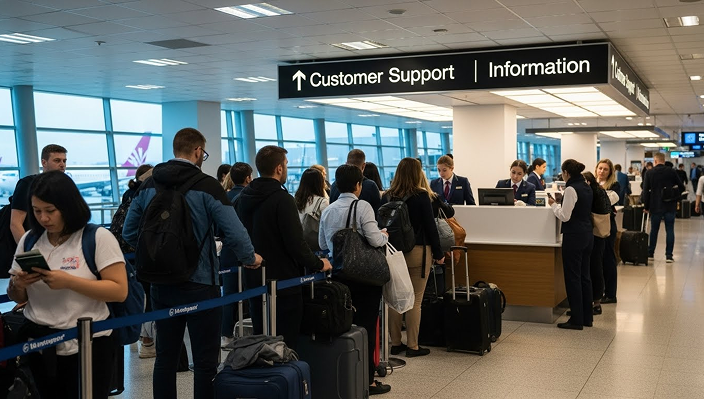Corporate offsites have become an essential tool for building team cohesion, fostering innovation, and aligning on strategic goals. But planning an offsite that delivers on these outcomes can be a daunting task. To help, a panel of experts recently shared their insider tips for planning stress-free, impactful company retreats in a webinar titled "Insider Secrets to Planning the Perfect Offsite."
Here’s a recap of the most valuable takeaways to help you plan a seamless and effective offsite for your team.
.avif)
1. Begin with a Clear Objective
The foundation of a successful offsite is a well-defined purpose.
“Always start with the why,” emphasized Daron Linton, a senior event planner. Whether the goal is to foster trust, align on company priorities, or simply celebrate team achievements, a clear objective ensures every aspect of your offsite—from the agenda to the venue—works toward achieving that goal.
Pro Tip: Align stakeholders on the purpose early to streamline decision-making and keep your planning focused.
2. Flexibility Saves Time and Money
When it comes to travel and accommodations, flexibility is a budget saver.
Adjusting travel dates can lead to significant savings on airfare and hotel costs. For example, midweek stays or Sunday check-ins often come with lower rates. Similarly, avoiding peak travel seasons, like spring break or holiday weekends, can prevent budget blowouts.
Pro Tip: Research off-peak seasons for your destination and book accordingly.
3. Choose a Destination That Works for Your Team
Selecting the right location isn’t just about aesthetics—it’s about practicality.
For larger teams, prioritize destinations with accessible airports and multiple direct flight options. For smaller, more intimate gatherings, consider venues that encourage focus and collaboration, like secluded retreats or boutique hotels. Also, consider travel time zones to minimize disruptions to your agenda.
Pro Tip: Match the destination to your group’s size and purpose, keeping convenience and attendee experience in mind.
.avif)
4. Manage Airfare and Logistics Efficiently
Travel logistics are one of the most challenging aspects of offsite planning.
To streamline this process, start by setting a clear travel budget and choosing dates that optimize airfare costs. Avoiding peak travel periods and consolidating group bookings can also reduce overall expenses.
Pro Tip: Tools and apps that track flight costs across dates and destinations can help you make informed decisions early in the planning process.
5. Build Strong Vendor Relationships
Reliable vendor partnerships are key to simplifying your offsite planning.
Working with vendors you trust—whether it’s a hotel, transportation provider, or catering company—ensures smoother communication and better service. Building long-term relationships with these vendors can lead to perks like discounts or priority service.
Pro Tip: When selecting vendors, prioritize experience in corporate event planning to ensure reliability and professionalism.
6. Negotiate Hotel Contracts
Hotels expect some level of negotiation, so don’t hesitate to ask for concessions.
“Always try to negotiate at least one aspect of your contract,” Daron suggested. This might include waived meeting room fees, upgraded accommodations, or discounted group rates. Customizing contracts to meet your team’s needs can enhance the experience without inflating the budget.
Pro Tip: Look for opportunities to swap services or amenities for lower costs.
7. Simplify Attendee Communication
Managing RSVPs and attendee preferences doesn’t have to be a headache.
Centralizing attendee information, such as dietary needs and accommodation requests, can save you significant time and effort. Use technology to streamline this process and ensure attendees receive timely updates and event details.
Pro Tip: Create a centralized event landing page or send out detailed pre-event communications to answer common attendee questions.
8. Prepare for the Unexpected
In travel and events, flexibility is key.
From flight delays to weather disruptions, unexpected challenges can arise. Build buffer time into your schedule, especially on travel days, and consider backup plans for outdoor activities or travel hiccups.
Pro Tip: Encourage attendees to download airline apps for real-time updates on flight statuses to minimize confusion.
Conclusion: Elevate Your Offsite Planning Game
Corporate offsites are more than a chance to escape the daily grind—they’re an opportunity to inspire, align, and connect your team. By starting with a clear purpose, being flexible with logistics, and focusing on attendee experience, you can create a retreat that leaves a lasting impact.
Whether you’re planning a large-scale company event or an intimate team retreat, these tips will help you navigate the process with confidence and ease, ensuring your offsite achieves its intended goals.
Here’s to planning an unforgettable offsite!

.svg)
.svg)
.svg)

.avif)











.png)








.png)
.png)


-min.png)
.png)
-min.png)
.png)
-min.png)
.png)
-min.png)
.png)


.jpg)


















.png)
.png)


